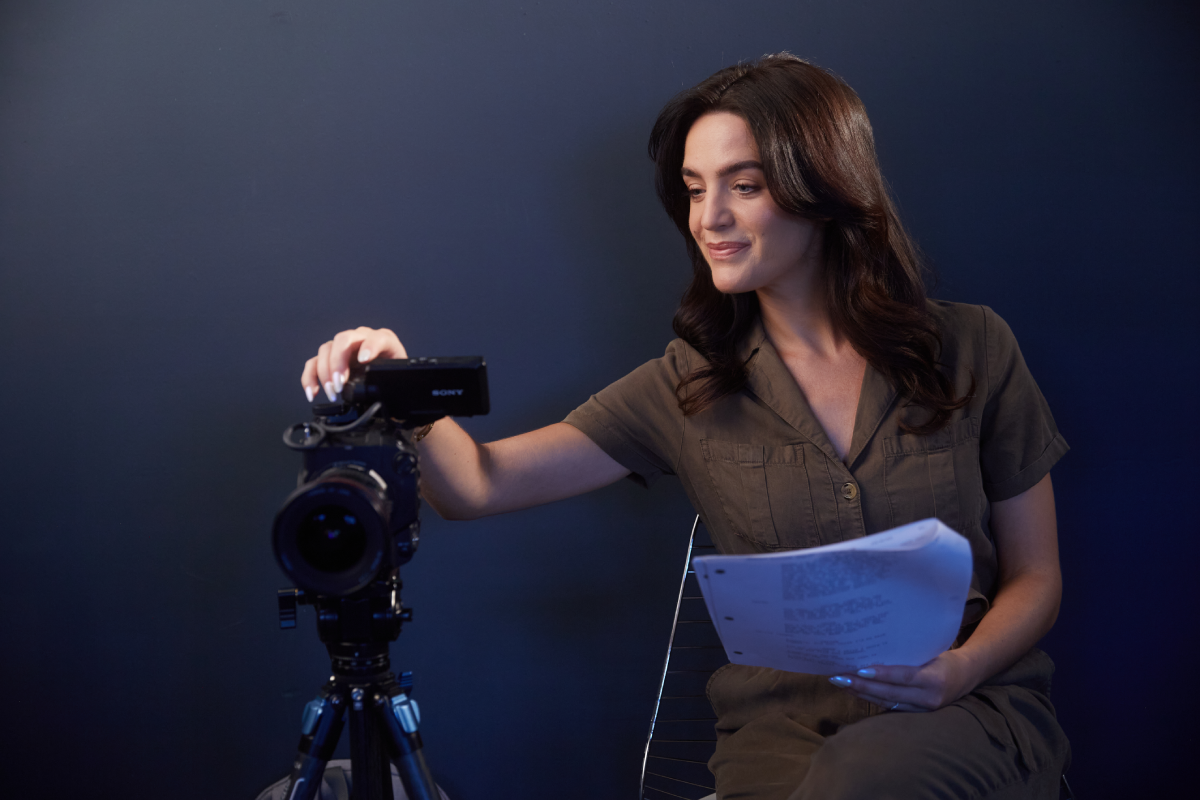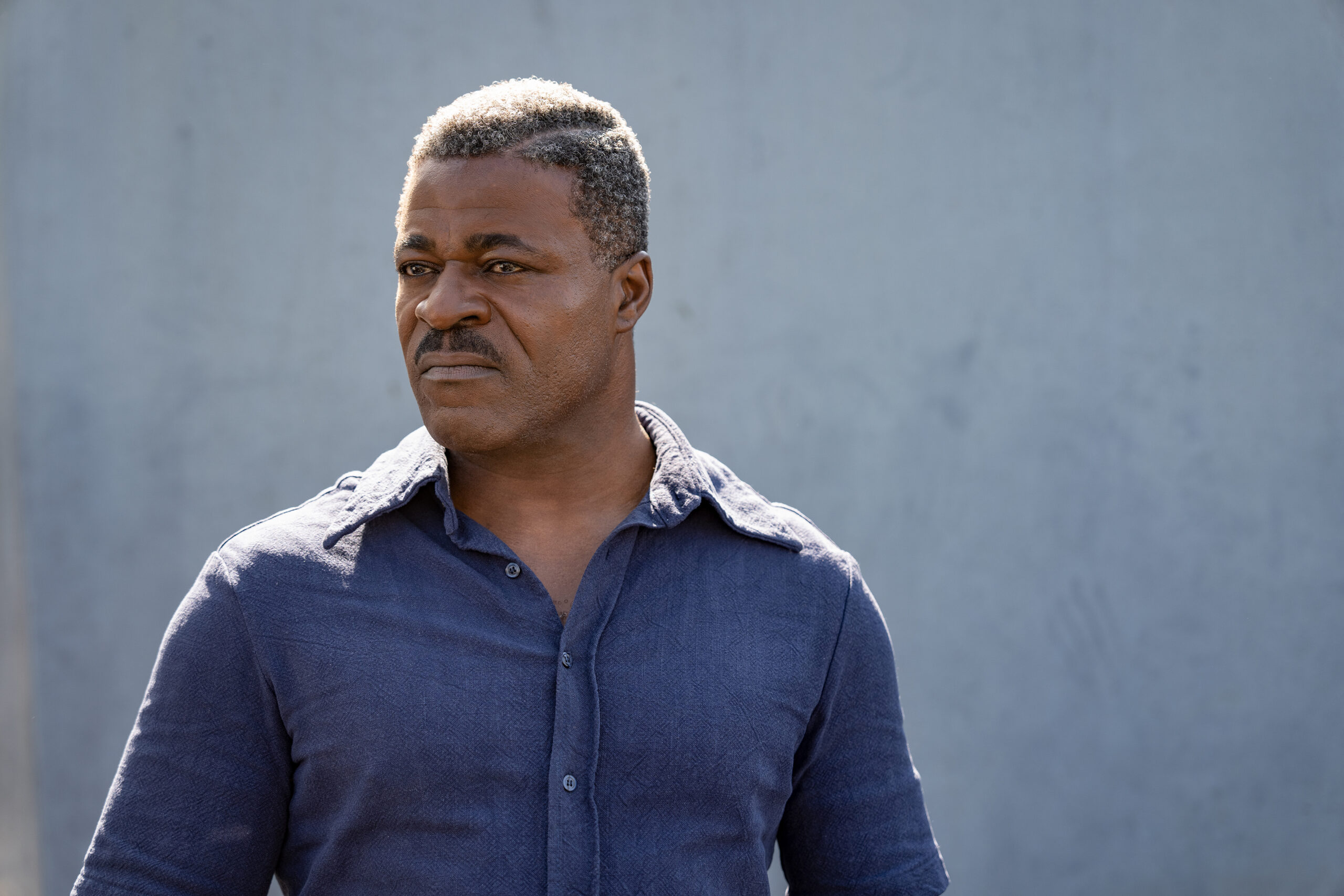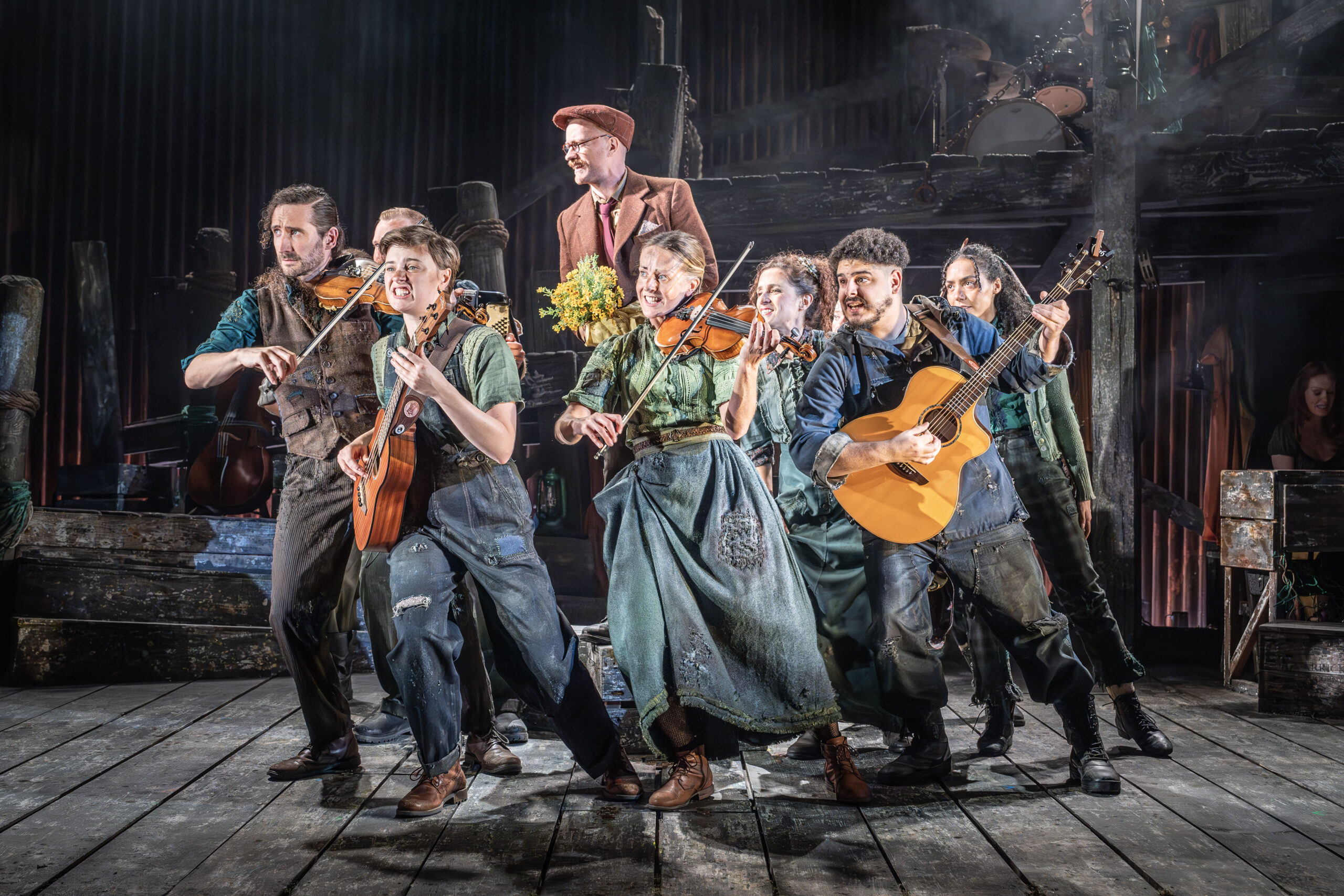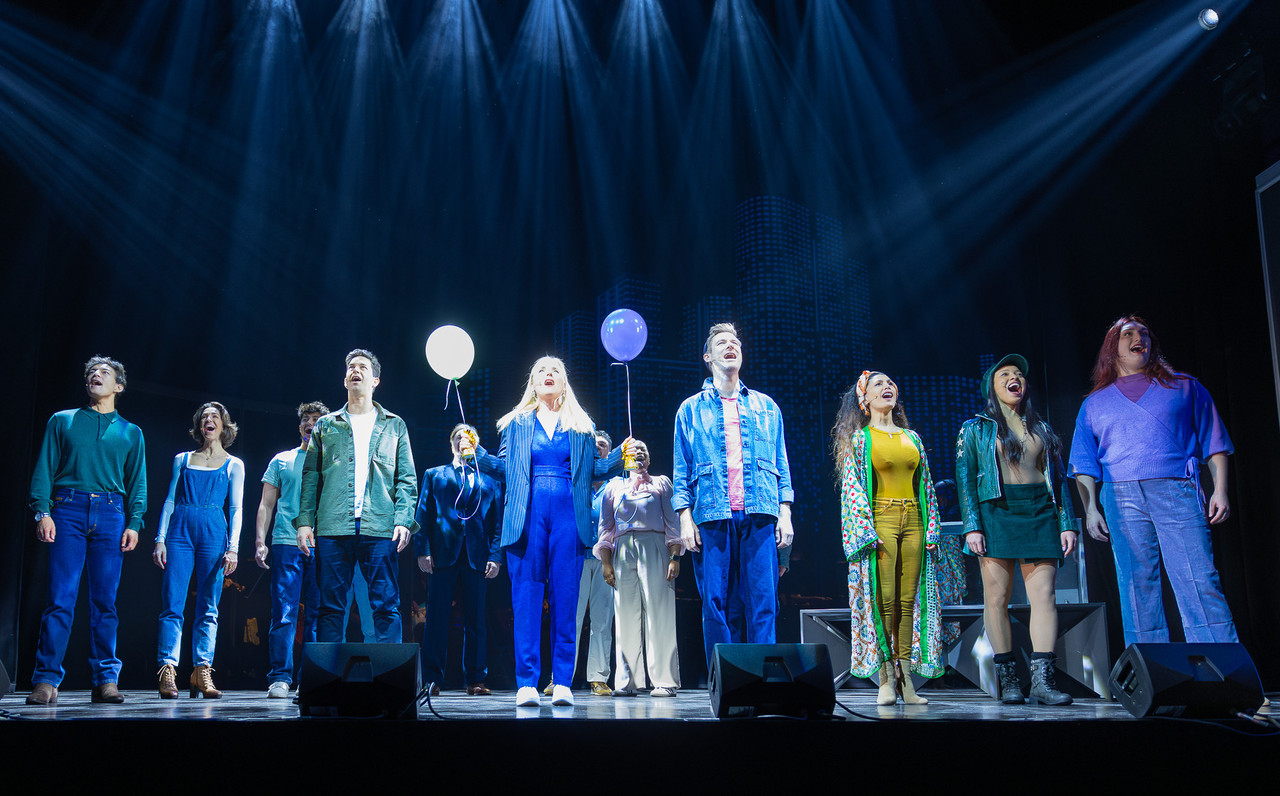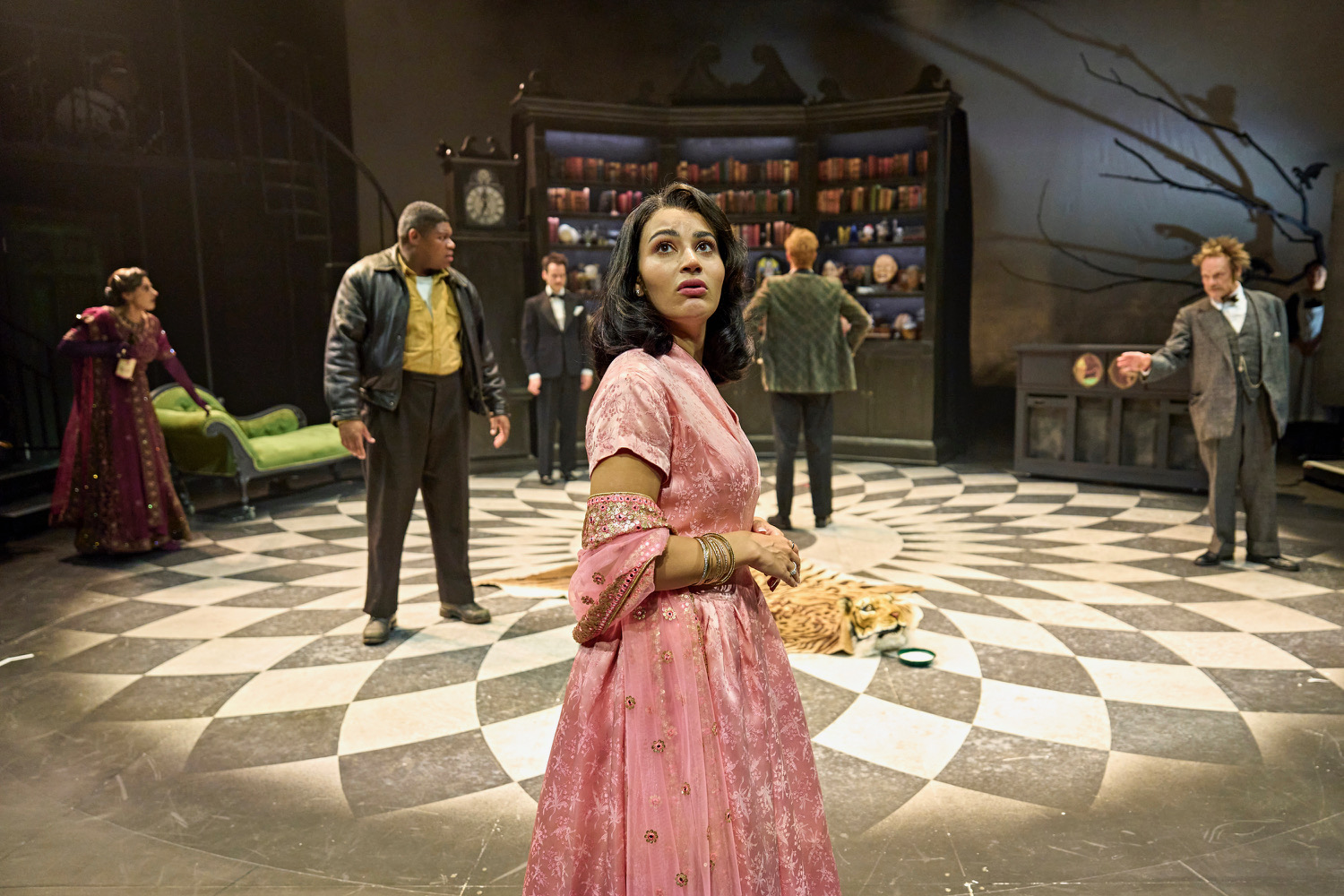‘The Ministry of Ungentlemanly Warfare‘ actor Danny Sapani tells us about auditioning for ‘Killing Eve’ and ‘Penny Dreadful’, being recognised in public and his top acting tip.
Acclaimed actor Danny Sapani has an impressive list of stage performances under his belt. His extensive theatre work includes playing ‘Brutus’ in Julius Caesar at Shakespeare’s Globe, ‘Jason’ in Medea and ‘King Lear’ at the Almeida, for which he won a Black British Theatre Award.
He’s also appeared in some of the best recent television series to grace our screens with starring roles in Killing Eve, Penny Dreadful, The Diplomat and Halo. Most recently, he played ‘Kambili Kalu’ in Guy Ritchie’s The Ministry of Ungentlemanly Warfare and beyond this, he’s had roles in Marvel’s Black Panther: Wakanda Forever, The Crown, Star Wars: Episode VIII – The Last Jedi and Misfits.
We were thrilled that Danny joined us at this year’s Spotlight Prize as one of the stage judges alongside actors Fra Fee and Louisa Harland. Danny helped to choose this year’s stage winner, Alyssa Thabisile Sibanda, among all the talented performances on the night.
During the showcase, we had the chance to talk to Danny about his audition for Guy Ritchie’s film The Ministry of Ungentlemanly Warfare as well as how he got his roles in Penny Dreadful and Killing Eve and what his top acting tips are.
Here’s what he shared:
Hello Danny! Which other performers have inspired you?
There [are] so many to choose from. A lot of stage actors, because that was my first love, people like Judi Dench and Anthony Hopkins. We watch a lot of film here as well, so people like Donald Sutherland and Don Cheadle. Obviously, the De Niros and the Al Pacinos, and the people that always had great craft.
There [are] character actors and leading actors, and there’s a gap in the middle and those are the people who used to inspire me.
Can you tell us about the audition process for The Ministry of Ungentlemanly Warfare?
I didn’t actually audition for that, which is a lovely thing to happen in an actor’s career. I met with Guy [Ritchie] and the team on set, and I suppose with a job like that, because of the way he works, every day feels like an audition.
We were rewriting the script often 20 minutes before we started shooting, which is scary, but he made it very easy to do because he clearly loves actors and wants to get the best out of them. It’s a rare thing when that happens, but a very satisfying one.
How did you get your roles in Penny Dreadful and Killing Eve?
Penny Dreadful was a conversation that I had with John Logan and I would say that that was one of my formative TV shows. The great thing about that was, because I worked mainly on stage, to be able to work with a team and to watch playback and to see how your performance was reading on screen, it was like a school for me and a great opportunity.
I don’t think it’s an opportunity that a lot of actors get, to watch playback. Often, directors are very precious about doing that because they feel it can inhibit a performance, but it didn’t for us. It gave us an opportunity to see what we were doing and to learn from it and to improve on it.
Similarly, Killing Eve was a very collaborative experience. Very much led by the actors and the director, and the writers, of course. A lot of the writers are actors. It was a lot of fun, a lot of creativity and a lot of imagination with that whole process.
How important is it for performers to have a good relationship with their agent?
I think it’s incredibly important to have a good relationship with your agent because they’re the ones who are putting you forward for stuff and you need to be able to tell them what it is that you want. You need to be able to agree on what sort of shape you want your career to take. Often at the beginning, you don’t know what that is and so it’s good to have somebody who you trust, who has your best interests at heart.
I’ve worked with the same agent all my career. In fact, my original agent retired and handed it over to my [current] agent, and so I was with my original agent and then I moved over – they’ve changed, I haven’t. It’s one of the most important relationships in my life.
How do you deal with social media and being recognised in public?
Social media is not so much of a problem for me because it’s really just to promote things that I think are great or things that I’m in, or resending stuff that people have sent me. I don’t feel too much pressure in that sense.
Being stopped in the street, I like to have conversations with people and learn about them. So, it’s a good opportunity to actually engage with people, which is nice. People are usually quite complimentary and nice. I haven’t had any bad experiences in that sense.
It’s funny, the things you get recognised for [are] often the popular commercial things that you do, but still, it’s always a pleasure to meet people. Sometimes the autograph hunters can be a bit of a strange experience because they don’t want you to sign it to anyone and I’m sure they end up on eBay. But we’ve all got to eat, so it’s fine.
What’s the best acting advice you’ve ever been given?
To take a little bit from every single job you do. My agent, Marina Martin – she was an amazing woman – once said to me that of the 10 jobs that you would get, one of them is the job that comes along every 10 years that really does change your life. It speaks to everything that you want to say as an artist. The other nine are going to have one thing or two things that are worth putting in a toolbox for when that one job comes along.
So, keep a sense of what you are doing. You’re building a toolbox so that when something that really means something to you [comes along], you’ll be ready because you have all the tools that you’ve collected. Think of the long game – rather than the short.
What has been your favourite role so far?
It would probably be ‘Macbeth’, and I’m not superstitious. Recently I played [King] ‘Lear’ so it’s the Shakespeares. I know that it sounds probably quite boring for a British actor to be saying, “I love doing Shakespeare,” but it’s the range and the scope that you can get in those stories. We’re still trying to figure them out and every interpretation seems to bring something completely different to them. They’re very flexible in that sense. So those are some of the most fulfilling roles that I’ve played as a creative.
Ministry [of Ungentlemanly Warfare] was quite good fun, to play somebody who’s so out there and the character sort of changed from the minute I started to the minute we finished it. He went from being a doctor to a pirate to a public school boy [and] an arms dealer. I mean, it just kept changing, but that was a great experience.
And all of the American plays. They seem to be able to tell stories that are incredibly human. I think that we’re still trying to find a way to do that in our own voices here, so they’re always great to play. I recently did a Stephen Adly Guirgis play called Between Riverside and Crazy, which is just a masterpiece.
I’m still learning and I’m still enjoying what I do. I’m sure that that definitive role hasn’t come up yet, but I’m still searching for it.
Thank you Danny for taking the time to speak with us!
Read more interviews with actors, or take a look at our audition tips to help you land your next role.
Danny Sapani can be seen in ‘The Ministry of Ungentlemanly Warfare’, now streaming on Amazon Prime.













